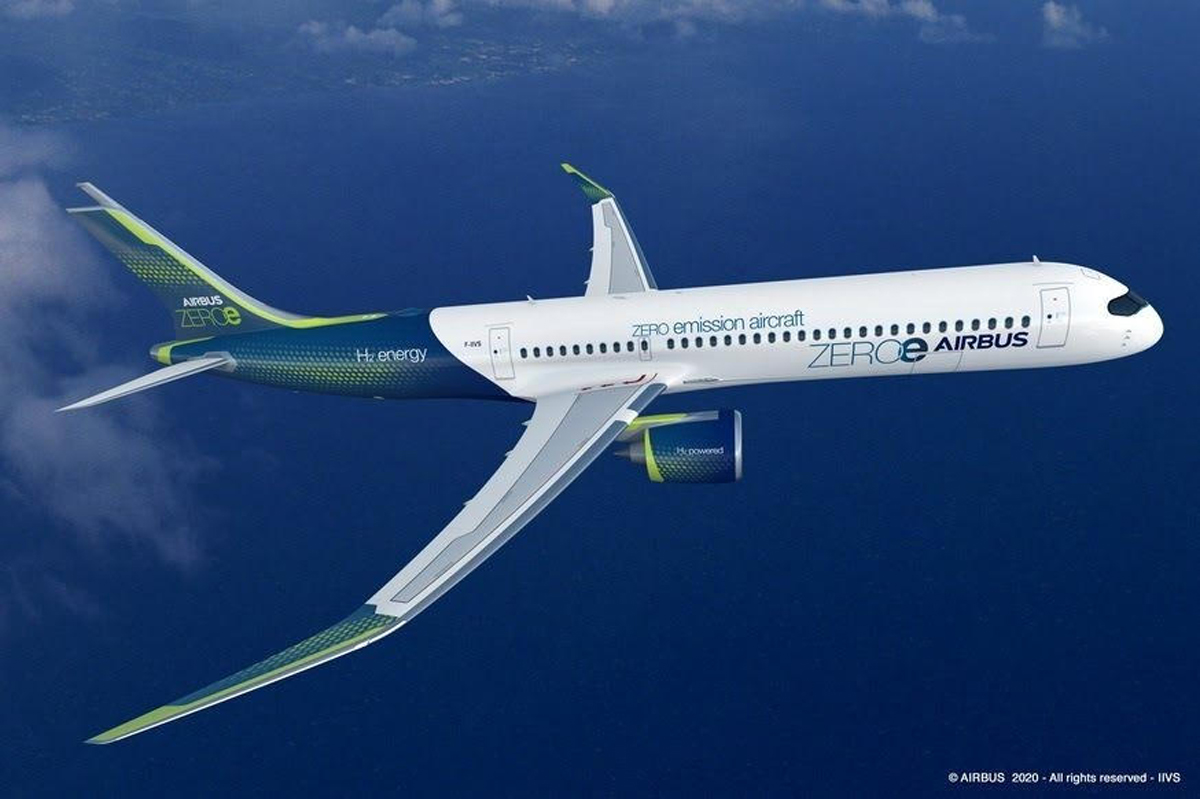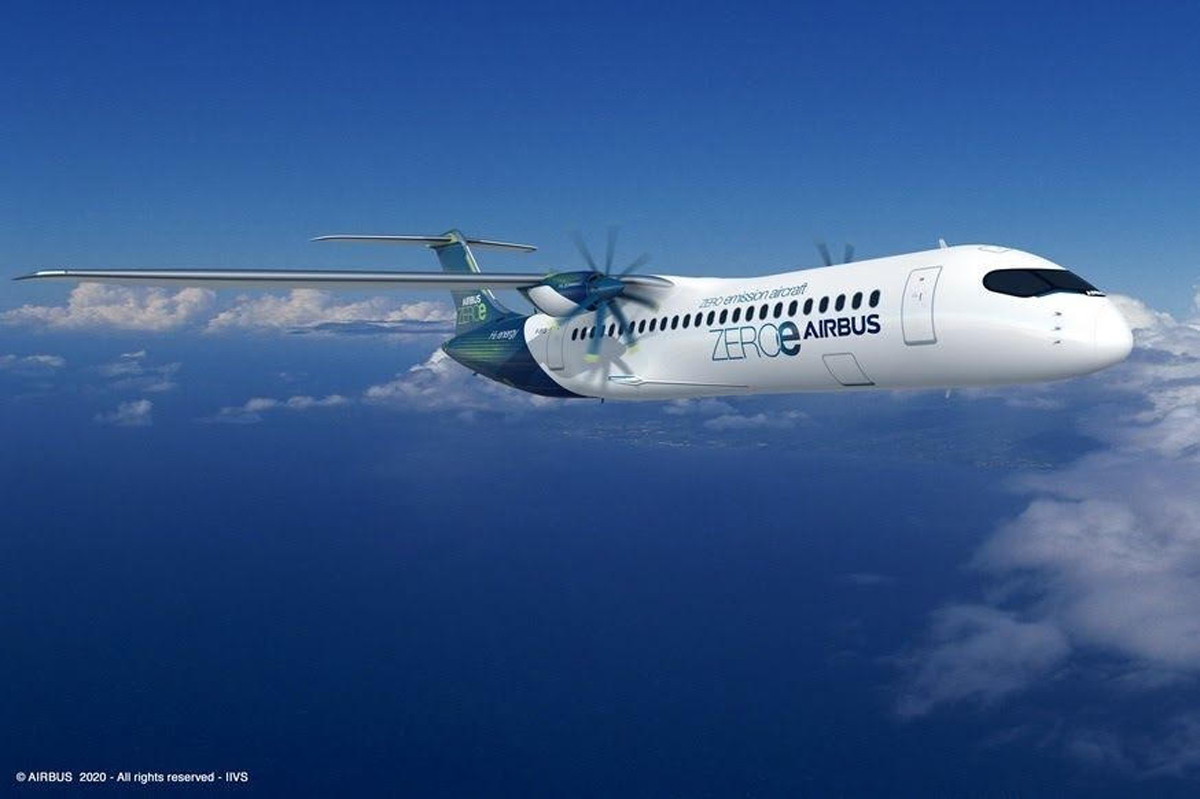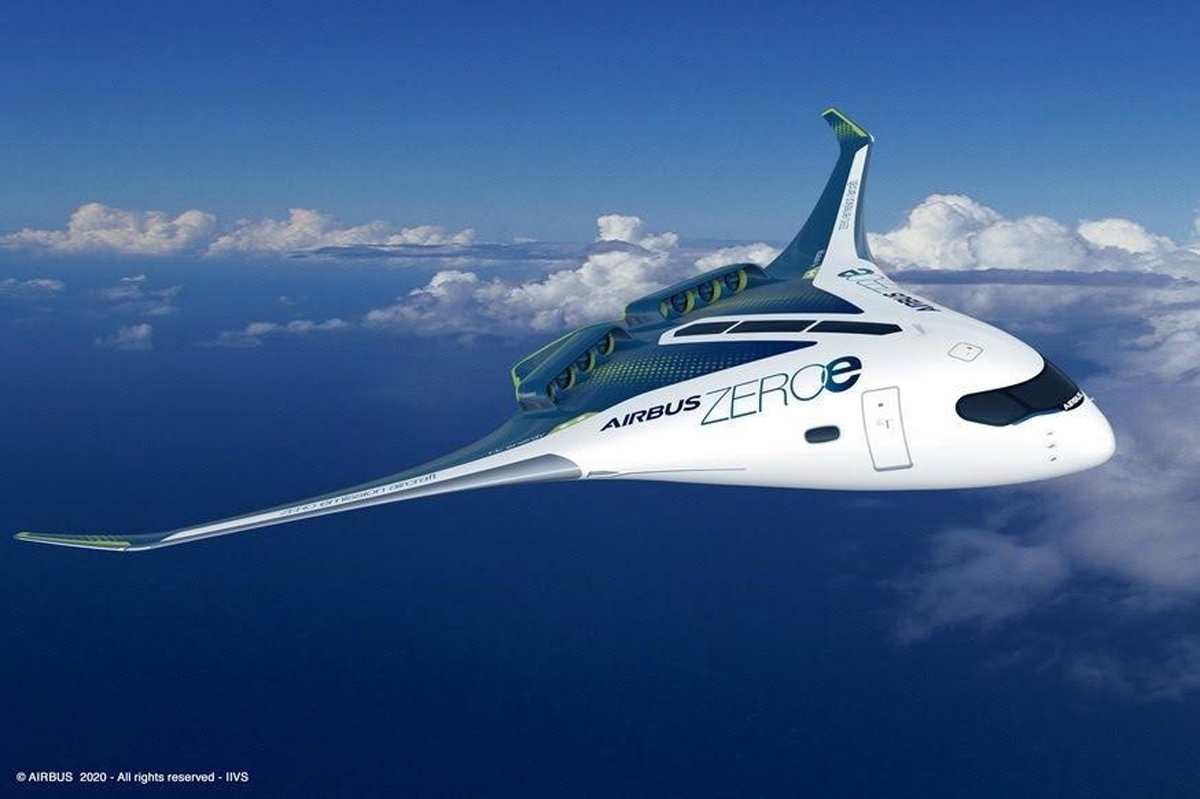These three concepts – codenamed as “ZEROe” – represent Airbus’ different approaches to achieve zero-emission flight in the next decade, exploring various technology pathways and aerodynamic configurations. As part of its goal to reduce emissions from air transportation, the company is aiming to have the new aircraft to rely on hydrogen as its primary power source. Airbus believes that hydrogen fuel holds ‘exceptional promise” as a clean source of energy for aviation.
The first of the three is the Turbofan design, with a range of 2,000_ nautical miles, and capable of operating transcontinentally. The aircraft is powered by a modified gas-turbine engine running on liquid hydrogen, which is stored and distributed via tanks located behind the rear pressure bulkhead. Airbus says that the Turbofan is capable of carrying 120 to 200 passengers.
Next is the Turboprop design which uses a hydrogen powered propeller engine instead of a turbine. The company says that the aircraft is capable of covering more than 1,000 nautical miles, suited for short-haul flights, and is able to carry up to 100 passengers.
Lastly, we have the Blended-wing Body design. The aircraft sports a flying wing body and much like the other two listed, it will also rely on hydrogen for aviation. Airbus explains that the exceptionally wide fuselage opens up multiple options for hydrogen storage and distribution and for cabin layout. Speaking of the latter, the Blended-wing is said to be capable of transporting up to 200 passengers. “The transition to hydrogen, as the primary power source for these concept planes, will require decisive action from the entire aviation ecosystem,” stated CEO Guillaume Faury in the press release by Airbus. “Together with the support from government and industrial partners we can rise up to this challenge to scale-up renewable energy and hydrogen for the sustainable future of the aviation industry.” (Source: Airbus press release / Official website | Header image: Eric Piermont/Getty Images)


